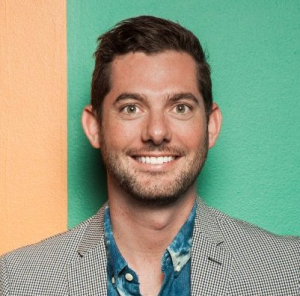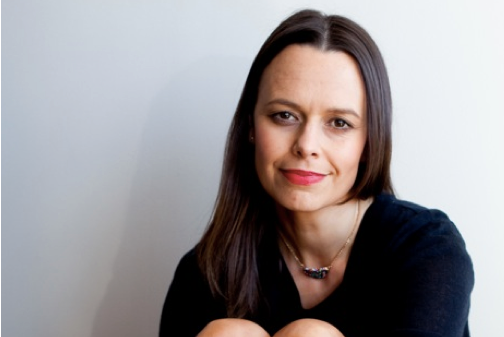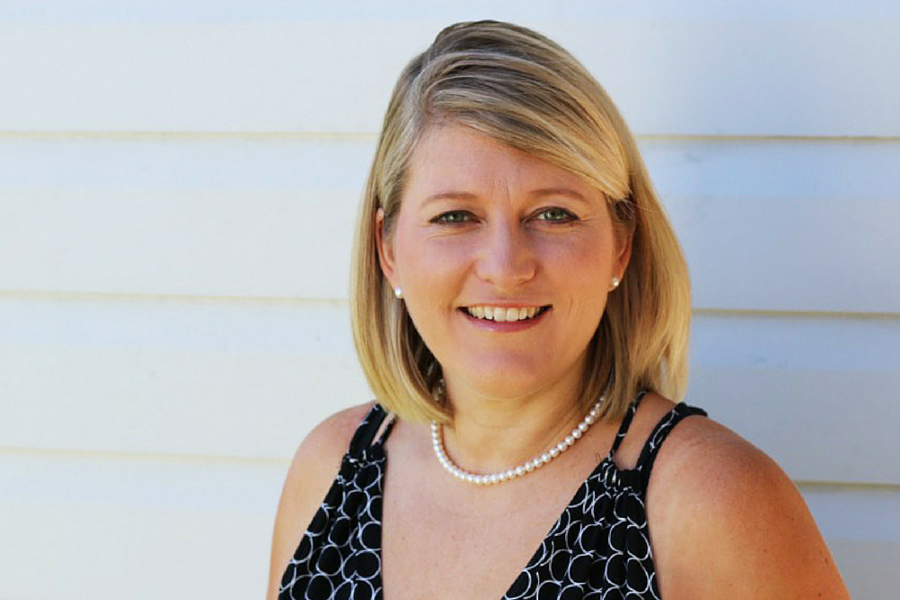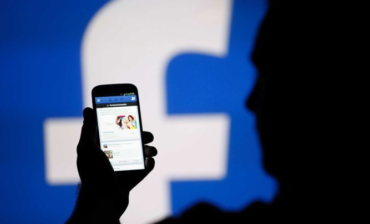
How publishers are responding to Facebook’s game-changing news feed shift
By now, all publishers would know Facebook will be giving them far less priority in the news feed, which could drastically reduce their online audience. Zoe Samios speaks to some of the country’s leading publishing brands to find out how they’re adapting and if they’re moving away from the platform.
For years, publishers have benefited from Facebook’s biggest asset: reach. They’ve desperately plugged articles into the site’s news feed in the hope of attracting audiences, with little return on revenue or proof their efforts were even effective.
Hindsight suggests this was one of the publishing industry’s biggest vulnerabilities, with Facebook founder Mark Zuckerberg reaffirming publishers’ fears last week, telling them they were not a priority for the tech giant anymore.
It’s clear Zuckerberg and Facebook had this planned for some time but some publishers are incredibly dependent on Facebook, with large parts of their strategy dedicated to building audiences through the platform. Now, organic reach will be harder to obtain and paid distribution could become more expensive.
But what will publishers need to do now to survive in this changing environment? Should they move entirely off the platform? Or just change their social distribution strategy?
Mumbrella reached out to a number of publishers to understand the impact the changes will have on them, and how they’re preparing to adapt.
The publisher’s perspective
Junkee Media co-founder and publisher: Tim Duggan
“A lot has been written about the news feed changes over the past few days, and as a publisher who’s been creating online content since before Facebook existed, we know that the one constant in digital publishing is change. You have to be pretty agile to thrive in this space, but good content will always find an audience.
“Facebook will be up-weighting posts from friends and family in the news feed, so our job will be to continue to make people laugh, think or learn so that they will want to share it with their friends and family. We are one of the most engaged and trusted publishers in the youth space, so we’ll be focusing on creating content that people will want to share with other people. Facebook is a very important channel, but it’s not the only way that people discover our content.
“Of course, no one can actually predict exactly what the changes will mean in reality, but we’ll monitor it daily and weekly and will tweak our content strategy to ensure it gets in front of people who really care about it. We’re super proud of the quality content that our team creates every single day, and we’re pretty excited for the big plans we have for Junkee and Punkee this year.”
A BuzzFeed spokesperson
“BuzzFeed’s mission from day one has been to create shareable content that enables meaningful interaction among families and friends; meaningful social content is our sweet spot. We expect to continue to fulfil that mission and transcend these news feed changes, which confirm trends we’ve seen over the platform in recent months and have already taken steps to evolve alongside.”
Pedestrian.TV co-founder: Chris Wirasinha
“It’s probably too early to comment right now on what the overall impact will be for publishers and brands. Pedestrian’s always been a multi-channel brand whose core focus is on our audience’s engagement with our content across all channels. We’re significantly more engaged than any of our direct competitors and our reporting and tone weaves into the fabric of our audience’s social activity. We’ve thrived under similar changes in the past that prioritise user engagement with content their friends are posting or sharing and we’re looking forward to working through any changes over the coming months.”
Mamamia co-founder: Mia Freedman
“This announcement from Facebook isn’t news for us or most publishers, we’ve all been talking amongst ourselves internally for a while as Facebook has dramatically been restricting access to our followers.
“So at Mamamia for the past 18 months we’ve had an active focus on diversifying our traffic referrals away from Facebook.
“Most significantly, over the past three years, we’ve built the world’s largest podcast network for women, entirely independently of any other platform and have recently reached 40 million downloads with year-on-year downloads up 306%. We use that mass reach to drive our audience to our site and to our brand partners.
“Combined with our growing reach on a range of platforms away from Facebook we are feeling cautiously optimistic. Seat belts fastened.”
Allure Media group publisher of PopSugar, Who What Wear, Byrdie, MyDomaine Australia: Alison Rice
“We’re not surprised by the change Facebook made to the Newsfeed, in fact we’ve spent the past few years with a publishing strategy that anticipated it. We’re interested in creating content of consequence and value, and we work closely with a variety of platforms to distribute it. Facebook is just one.
“Our publishing philosophy puts our audience first, so it’s not at all surprising to see Facebook doing that as well. If our industry can move past the obsession with vanity metrics of reach and pageviews as a proxy for effectiveness, products like Instant Articles can be viewed as a brand asset.
“It’s a better user experience, and we should all care deeply about how our content is represented on our brand platforms – for us, this includes the ones we don’t own and don’t seek to control. I think what is more interesting is the dialogue this can open around off-site content views as a performance metric. We’re brands publishing on platforms. Our website is just one platform.”
A News Corp spokesperson
“While we welcome changes that reward quality and confront clickbait, it is too soon to say how these proposals will play out in the real world, so we intend to monitor the impact closely to determine their effects. We will also be looking for any signs that the weighting of news sites is politically motivated. In the meantime, we will continue to negotiate with Facebook on developing a subscription model that can help expand the audience for and viability of quality journalism.”
Yahoo7 chief executive officer: Ed Harrison
“These are ultimately positive changes and it’ll be business as usual for Yahoo7, producing original, premium content which we distribute, at scale, through our large local and global network. I’m not surprised to see Facebook going back to their roots and focusing on P2P connections”.
Starts at 60 founder: Rebecca Wilson
“We have a very solid community who are not thrilled, but we’ve been expecting this for about four months directly and more indirectly known the time to change was nigh about 12 months ago. We saw signs in our data last quarter of them trialling something similar to what was announced Friday in Australia and we’ve been making wider plans to adapt for some time.
“Importantly as a team we can see changes in real time and change with them as we use data and analytics to actively map against our own model of the algorithm and track what types of content we believe our community needs/want at any time.
“Adapting fast is part of being in media these days. This is an issue that will face all publishers working in the “new world” so we won’t be alone. We must remember – people will go and look for content elsewhere if they can’t find it conveniently on Facebook. So the key is to be easy to find, convenient to read and bang-on in your connection with your community – that’s what we are.
“The one thing we have in our favour is the enormous connection we have demonstrated in conversation volumes that our community engage in on our content. It is not uncommon to see 1,000+ comments on an article and thousands of comments/shares on our wall in a day. We’ve never really looked to likes and emoticons as our measure of success. We value the true engagement of our community and real conversations. To falsify that to ourselves wouldn’t reflect the fact that we truly believe in what we do – making a difference to the lives of young-feeling older generations by connecting them.
“Starts at 60 and Travel at 60 are much more than just media – we are a real and hyper-connected community linked by the brand. And we still believe our community will be powerful on Facebook. We are therefore bringing to life a series of opt-in groups on Facebook where people can build an even bigger conversation and bring more to the content streams themselves too.
“We won’t beat around the bush – we expect to change, adapt and reach our community in different ways; to pay to reach where needed and to value Facebook differently in our plan. And we’re well on the path to that.”
Is the end really nigh?
Publishers have clearly been worried – and to an extent aware – that Facebook was going to make a change to its algorithm. Fortunately, they had already begun to prepare.
But these changes don’t mark the end for publishers on Facebook for a number of reasons.
Firstly, Facebook began to pivot its focus away from business pages in 2015, and honed that focus in during the past year. An article on Businesses Grow reported the organic reach for an average business today is less than 1%, compared to 26% in 2011.
This means if content wasn’t engaging and shareable, publishers would’ve already felt the impact, and adapted to resolve this.
Publishers like Junkee, Pedestrian and BuzzFeed, even satirical news website such as The Betoota Advocate, thrive on Facebook. They have an engaged ‘community’, who comment, share and view content day in, day out.
Take Junkee’s youth website Punkee for instance. In four months, the mobile-first website had more than 12.3m Facebook video views and 950,000 fan engagements.
The Facebook Groups solution
For those publishers who struggle to attract audiences through their content, building a community through Facebook Groups might be an alternative option, as Starts at 60 founder Wilson alludes to.
Last year, Zuckerberg said the technology giant would focus on community, founded through ‘Groups’. An article in Digiday this week reported publishers such as The New York Times, Bloomberg News and BuzzFeed are using these groups to grow subscriptions and promote particular areas of content or podcasts, in the case of the NYT.
Analytics allow administrators to track group usage and observe active members and their interactions.
One of the publications Rice oversees – Who What Wear – has already started using Facebook Groups to build communities around the brand. Who What Wear’s Facebook Group ‘Clique’ began in April last year, and provides a platform for discussions around lifestyle and fashion for readers.
“The group is an opportunity for people to self-brand in that sense. By being in the group, by being invited into the group also says something about who they are.
“We’ve found that as soon as one person gets invited then they might invite a handful of friends that they know will get something out of it and I think that’s really been quite serviced based in that sense.
“It’s certainly more community based, service mentality and just people who are really fashion, beauty, lifestyle, food. For us, it’s gives us an opportunity for our editors particularly to interact with our audience in real time and in a private safe space,” she says.
Rice says what she enjoys most is the strategy behind the group, which was based around serving the members as opposed to attracting large-scale audiences.
“Certainly for us, it’s a really enjoyable place where our brand is beautifully presented and then we can also influence our readers in a different way, rather than link pushing which I think has traditionally been a bit of a publishing mentally.”
Rice believes Facebook Groups could be an important tool for publishers as they allow audiences to interact with a brand they know and love in a place where they are.
“That will be important for publishers especially some of the more well known ones that are producing fantastic service-like content,” she says.
Junkee Media’s Duggan tells Mumbrella it wasn’t something the publisher had commenced doing, but it was a potential area of interest.
“We don’t have any plans for Facebook Groups at the moment but will keep an eye on the trend and see how it develops,” he says.
“The numbers on the US publisher-controlled groups seem pretty small at the moment, but Facebook groups can be powerful ways of spreading content to a highly engaged audience so we’ll watch it for now.”











Quote from Newcorp: “While we welcome changes that reward quality and confront clickbait”
LOLLLLLLLLLL
Always plenty of pissing and moaning from news publishers about Facebook but rarely hear of solutions to combat their falling revenues.
Facebook doesn’t owe them anything.
What if….?
What if a media publisher consortium was formed to create a Facebook-style consumer experience – an aggregator of news and media articles that consumers can comment of and interact with and share (without the need to go through paywalls and multiple sign-ups).
All too often companies are bickering about their own patch of turf – that they are missing what the consumer actually wants/needs.
One day – in the future – Facebook wont exist. Where will this leave news publishers then to get their necessary reach – I’d be thinking about it right now.
Mia Freedman nailed it when she said, “Facebook has dramatically been restricting access to our followers.”
The greatest trick Facebook ever pulled was getting content providers to rely on them without ever directly offering them a dime, and then charging them a dollar back for the privilege of reaching their followers. At least Mia sees the forest for the trees, unlike some publishers quoted…
Facebook has clearly dictated that the organic love affair is over and still some publishers, like ex-lovers addicted to the lashes tongue, continue with their self-flagellation, frantically tying themselves in ever tighter knots in the hope of convincing themselves how closely their goals align with their master’s.
Advertising will not be the future core cashchow of FB. The migration of their business model from advertising to becoming a diversified communications giant is evident. In order to achieve this is retention and conversion of users across all of their platforms and unfortunately saturation of ads on facebook has seen many users migrate to utilization of instagram for both content and direct communication.
I for one hate my newsfeed as I am inundated with irrelevant crap and hardly see content from my friends.
Wow, the Yahoo7 CEO has no idea. Business as usual? Really? At least Mia and Junkee seem to be engaged with the real world and understand the impact on audience.